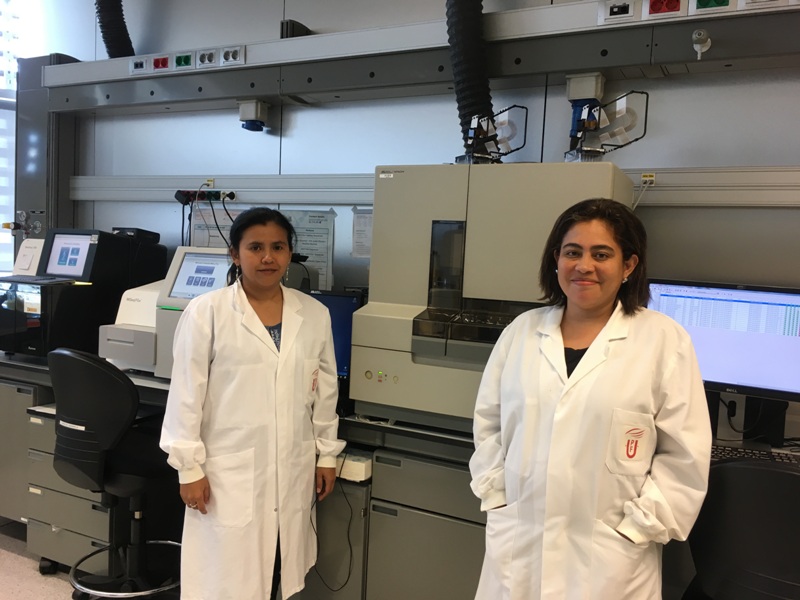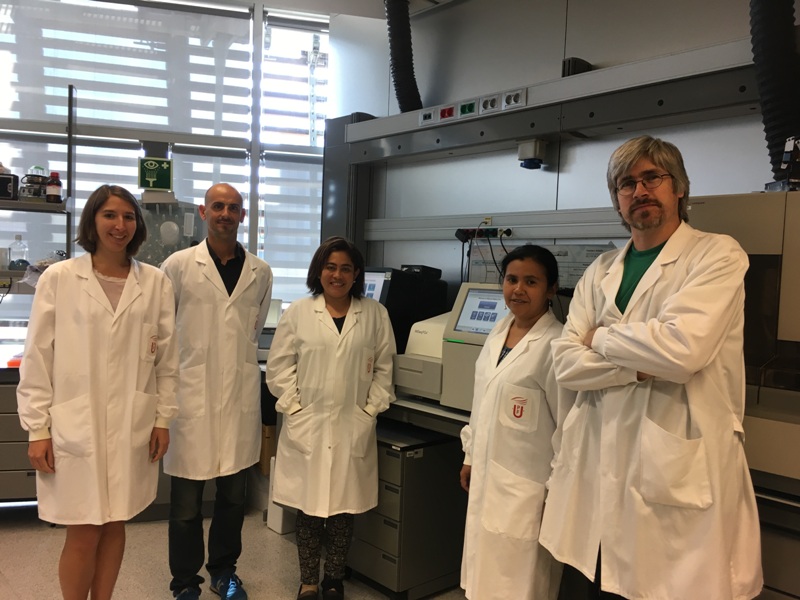UPF is collaborating in the implementation of a bank of genetic profiles at the University of El Salvador
UPF is collaborating in the implementation of a bank of genetic profiles at the University of El Salvador

The civil war in El Salvador ended in 1992, with the signing of the Chapultepec Peace Accords. Despite great strides towards peace and democracy, the country still faces the challenge of solving the consequences of the war, in addition to the new challenges of daily crime and violence that threaten social and economic development.
“Genetics are a very powerful tool both to identify genetic remnants and to generate a network of affiliations between relatives and missing persons”, says Celia Yanira Vanegas, who is professor and researcher at the Faculty of Medicine of the University of El Salvador (UES). She adds that an average of eleven people die each day at the hands of criminal acts in her country: “It is said that for every person killed, there is a similar number of missing persons in the country”. Vanegas is currently in Barcelona on a stage at Pompeu Fabra University to learn how to use genomic sequencing methods in the company of Tania Cuadra, a professor at the UES Faculty of Chemistry and Pharmacy. The head of the UPF Genomics Core Facilities, Ferran Casals, and his team have accompanied both researchers to train them in the latest advances in genetic analysis. “We are very happy to collaborate in this work, which we hope will be a first step towards the creation of a bank of genetic profiles for the identification of missing persons in El Salvador”, says Casals.
 Vanegas and Cuadra knew about Casals' work on identifying the remains of the Spanish Civil War and thanks to the collaboration of the UPF Solidària programme, they have been able to spend ten days in the city of Barcelona. This contributes to the collaborative work of the university with Pro-Búsqueda, a non-profit organization that investigates cases of disappearance (especially of minors) that occurred during the armed conflict in El Salvador. One of the initiatives of Pro-Búsqueda is the creation of a bank of genetic profiles of missing persons. According to Cuadra, “for every family member that has gone missing, there is always a relative looking for him. Getting the family together, knowing what happened to a loved one, is critical in order to close the chapter and move forward”. “This experience, besides training us in the field of genetics, has helped us to see how we can give continuity to the project. Now we know what direction to take in our country and we are willing to make new exchanges that will allow us to learn even more”, Vanegas concludes.
Vanegas and Cuadra knew about Casals' work on identifying the remains of the Spanish Civil War and thanks to the collaboration of the UPF Solidària programme, they have been able to spend ten days in the city of Barcelona. This contributes to the collaborative work of the university with Pro-Búsqueda, a non-profit organization that investigates cases of disappearance (especially of minors) that occurred during the armed conflict in El Salvador. One of the initiatives of Pro-Búsqueda is the creation of a bank of genetic profiles of missing persons. According to Cuadra, “for every family member that has gone missing, there is always a relative looking for him. Getting the family together, knowing what happened to a loved one, is critical in order to close the chapter and move forward”. “This experience, besides training us in the field of genetics, has helped us to see how we can give continuity to the project. Now we know what direction to take in our country and we are willing to make new exchanges that will allow us to learn even more”, Vanegas concludes.
